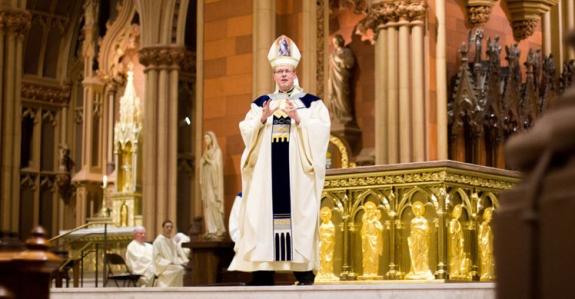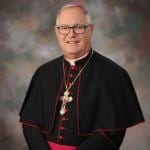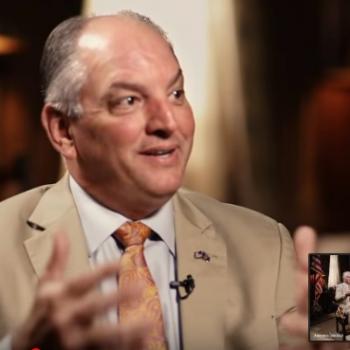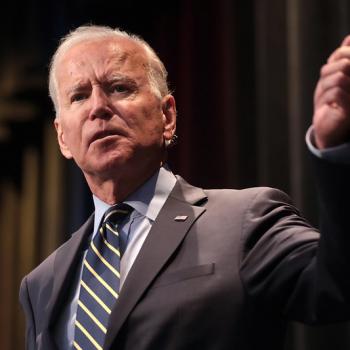Bishop Ed Scharfenberger, who himself holds a license in canon law, offers some thoughts on what that law has to say about excommunication in the current edition of The Evangelist:
As calls for excommunication from rank-and-file Catholics across the state began to increase, it became clear that there were some fundamental issues that needed to be addressed: What exactly is excommunication? How would it be used? When was the last time it was used? The Evangelist sat down with Bishop Scharfenberger to talk about that and what he believes people may actually be missing, amid the understandable outrage and anger.
Excommunication (from the Latin excommunicatus, to literally “put out of the community”) is the strongest form of discipline the Church can place on an individual, in that it is an act of religious censure used to prevent an individual from receiving the sacraments. For example, Bishop Scharfenberger explained, while an excommunicated person cannot receive holy Communion, they could still attend Mass and be nourished by the Word of God, with the hope for “a full restoration of full communion with the Church.”
There are two types of excommunication: Latae Sententiae and Ferendae Sententiae. Latae Sententiae is a breach of canon law — which is ecclesiastical law and has nothing to do with criminal law — that is so severe it brings about automatic excommunication.
“Abortion is one of them. So anybody that procures an abortion … and it has to be successful so it only comes into effect if the child dies,” Bishop Scharfenberger said. “If you can demonstrate that somebody directly procured an abortion and that a child dies as a result, they are automatically excommunicated by the law itself. A bishop, a pope has to do nothing.”
Canon Law 1398 deals with abortion, but most canon lawyers, Bishop Scharfenberger included, say that it does not apply to politicians.
In the second type of excommunication there must a be a canonical crime committed, explained Bishop Scharfenberger.
If a bishop was presented with a crime that fell into this category, Bishop Scharfenberger said, “then a sanction could be imposed for that crime, it doesn’t automatically have to be excommunication, it could be something else…
“It’s a sanction that is meant to lead to the healing of the person that is sanctioned and also to protect the community. When you are dealing with sanctions there are only a few possibilities. For a lay person you could say you are not to approach for holy Communion; however that is already in the law so you really don’t need a statement from the bishop for that to happen.
“I could say nobody may give Gov. Cuomo Communion, but that would not be sufficient to stop his behavior because if he is still doing what he is doing … what purpose would that achieve?”
He concludes:
“Here is my biggest concern: We are taking attention away from what really is the problem, what really is the cancer here, focusing on punishment and forgetting about what really has caused this,” he said, “and that is the ideology that has been deceiving us for years that it’s a good thing when women feel they have no other choice but to kill their child. That’s a bad thing for women. That’s a bad thing for society.”
There’s much more. Read it all.













